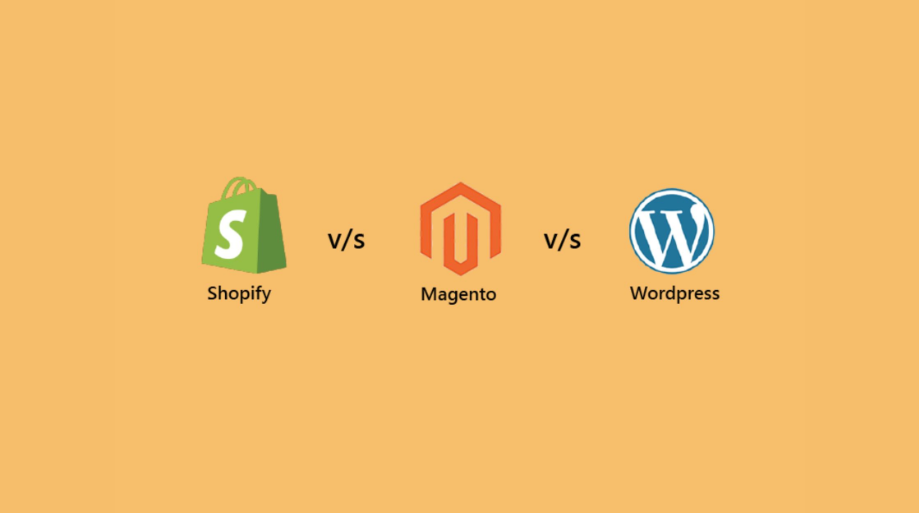
Choosing the Right CMS for Your London-Based Business: Shopify, WordPress, or Magento
1. Introduction
Selecting the perfect CMS is foundational for any London-based business aiming to build traffic, credibility, and conversions online. Whether you’re focused on ease of use, flexibility, performance, or advanced functionality, Shopify, WordPress, and Magento each offer unique strengths. In this blog, we’ll break down their key features and help you choose the CMS that aligns best with your business goals and growth plans.
2. CMS Market Leadership (Data Insight)
The global CMS landscape is dominated by WordPress, which holds an estimated 61%–63% market share among websites using CMS platforms COAX Software+9SlideServe+9outorigin.com+9Architectural DigestThemeisle+1. Shopify trails with roughly 6.7% share, while Magento remains more niche, especially valuable for technical and enterprise needs WpmetWeb Design London.
3. Shopify—The User-Friendly E-commerce King
- Ease of Use & Hosted Service: Shopify simplifies e-commerce by managing hosting, security, and updates for you TechRadar+11Adware Technologies+11externlabs.com+11.
- Scalability & App Ecosystem: With over 8,000 extensions and tiered plans, it supports everything from startups to branded enterprises TechRadar+1.
- Best For: Small to medium London businesses wanting speed, simplicity, and reliability without technical headaches.
4. WordPress—The Flexible All-Rounder
- Popular & Versatile: Powers over 60% of CMS websites and excels in blogs, content, and e-commerce when paired with WooCommerce outorigin.com+15externlabs.com+15SlideServe+15tooltester.com.
- Plugins & Customization: With tens of thousands of plugins, you control design, functionality, and SEO.
- Hosting Control: You choose your host—great performance potential, but needs proper setup.
- Best For: London businesses requiring rich content, marketing control, and custom integrations.
5. Magento—The Enterprise-Grade Powerhouse
- Full Control & Scalability: Open-source and highly customizable, ideal for complex catalogs and tailored workflows MGT Commerceen.wikipedia.org.
- Enterprise Support: With Adobe backing, it offers robust enterprise-level performance and support en.wikipedia.org.
- Best For: High-volume London retailers needing full flexibility and advanced multi-store management.
6. Quick Comparison Table
| Feature | Shopify | WordPress + WooCommerce | Magento (Adobe Commerce) |
|---|---|---|---|
| Ease of Setup | Very easy, hosted | Moderate, self-hosted | Complex, technical setup |
| Customization | App-driven, limited core control | Highly flexible via plugins | Full control via code |
| Scalability | Medium to large scale | Medium to large scale | Large enterprise scale |
| SEO & Content Strategy | Basic SEO tools | Advanced SEO plugins | Full SEO control |
| Cost | Subscription + apps | Hosting + plugins | High development cost |
| Ideal For | Small/medium e-commerce | Content-rich business or blogs | Complex enterprise e-commerce |
7. How to Choose (3 Key Questions)
- Are you focused on quick setup or full control? → Shopify vs WordPress/Magento
- Do you plan to scale big soon? → Shopify (smooth scale) vs Magento (deep customization)
- Is content and SEO your top priority? → WordPress wins for flexibility and inbound marketing
8. Conclusion
For London businesses, Shopify suits those seeking speed and dependability for selling products. WordPress is the go-to when content, branding, and customization are priorities. Magento is a strategic choice when complexity, performance, and enterprise-level control matter most. Want help translating your CMS choice into a high-performing, polished site? Digital Web London can tailor the perfect solution.
Tags : CMS for London businesses, best CMS London, Shopify London, WordPress London, Magento London, ecommerce platforms comparison, hosted vs open-source CMS, CMS scalability, secure CMS, SEO-friendly CMS, CMS customization, enterprise ecommerce London, WooCommerce London, Shopify alternatives, Magento vs Shopify
